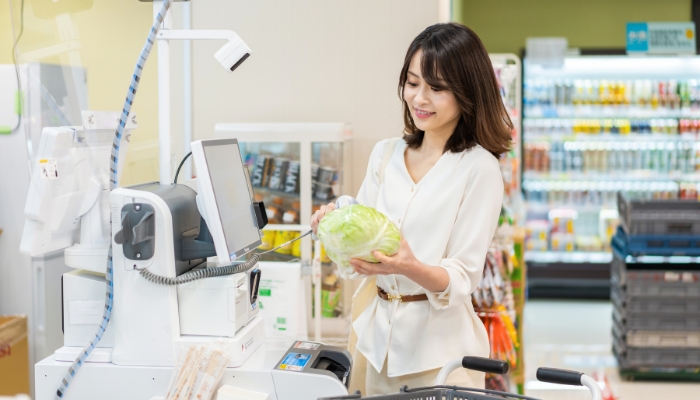Business
From Self-Scan to Staffed: The Retail Shift in Checkout Technology

- Retailers are reevaluating self-checkout systems due to concerns about theft, customer dissatisfaction, and accessibility issues.
- Chains like Asda and Morrisons are increasing staffed tills while Booths has completely removed self-checkouts.
- The future may involve a hybrid model combining self-scan efficiency with the personal touch of staffed lanes.
- Advances in technology, such as AI and facial recognition, could enhance self-checkout systems and address current challenges.
Self-checkout systems have been popular in supermarkets in recent years, promising customers the ease of faster transactions and more control over their food shopping experience. However, an increasing number of businesses are rethinking their commitment to these automated systems, implying that self-checkouts may not be the unequivocal success they previously were.
The Benefits of Self-Checkout
Self-checkout lanes have received praise for their efficiency. Shoppers may scan their things at their own pace, bypass huge lines, and make purchases with minimal contact. For many, this simplified approach is a pleasant departure from traditional checkout lines, when slow-moving customers or overworked cashiers might try one’s patience.
For merchants, the advantages are enormous. Self-checkouts cut labor expenses while increasing operational efficiency. They also provide useful information on client behavior that can be utilized to improve inventory management, marketing initiatives, and pricing models. This data-driven approach is a major reason why self-scan technology has been so widely adopted.
Challenges of Self-Checkout
Despite the benefits, self-checkouts are not without downsides. One of the most pressing issues is the increased risk of theft. Retailers have implemented a variety of steps to tackle this issue, such as security cameras and loss prevention personnel, although the danger remains higher than in typical checkout lanes.
Customer dissatisfaction also presents a considerable challenge. While some customers value the convenience of self-checkouts, others find the process impersonal and annoying. Technical difficulties, the need for assistance, and a lack of human interaction can all have a negative impact on the buying experience. Self-checkouts might be more difficult for elderly or disabled clients, making the procedure less accessible.
Shifting Priorities
Recent developments point to a shift in how certain shops treat self-checkouts. Major retailers such as Asda and Morrisons are reconsidering their usage of self-serve lanes. Asda has announced intentions to expand the number of staffed tills, and Morrisons is considering phasing out self-checkout terminals in favor of more traditional options. This move is in response to customer feedback that they prefer the confidence of human interaction or struggle with technology.
Smaller businesses, such as Booths, have adopted a more dramatic approach, altogether deleting self-checkouts from their stores. This action demonstrates a growing realization that, while self-scan technology has advantages, it may not be compatible with every store’s customer service philosophy.
The Future of Checkout Technology
The argument over self-checkout mirrors broader trends in retail technology. The future of checkout systems could take a hybrid approach, combining the speed and ease of self-scan with the personal touch of manned lanes. This strategy might accommodate to a wide range of client preferences, providing options for both those who value convenience and those who prefer a more traditional shopping experience.
Furthermore, technological developments may address some of self-checkout’s existing restrictions. Facial recognition and artificial intelligence could improve security, streamline the scanning process, and provide personalized help to customers. These changes may assist to alleviate some of the current issues and increase overall consumer happiness.


















































